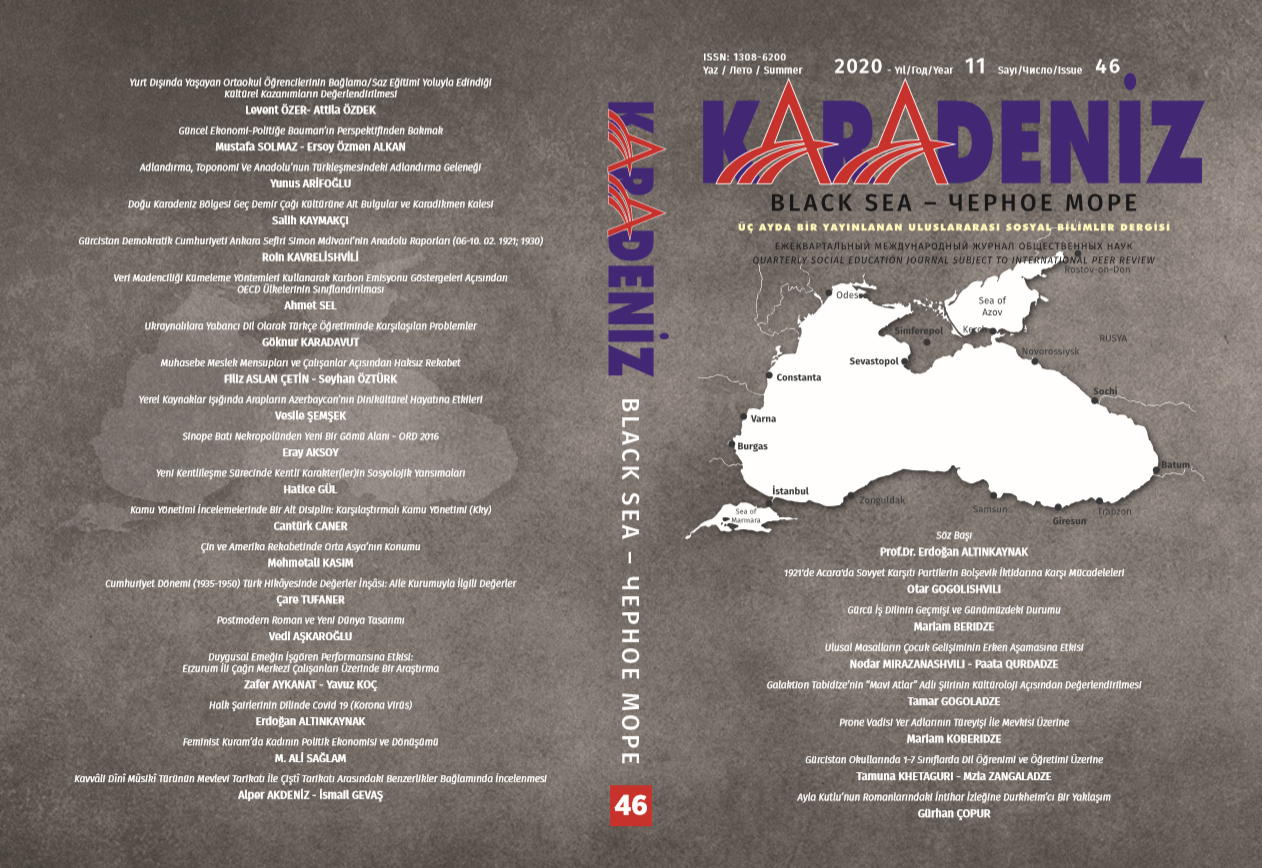DESHRIBES THE STRUGGLE OF THE ANTI - PARTIES AGAINST THE BOLSHEVIK AUTHORITIES IN ADJARA IN 1921 YEAR
DESHRIBES THE STRUGGLE OF THE ANTI - PARTIES AGAINST THE BOLSHEVIK AUTHORITIES IN ADJARA IN 1921 YEAR
Author(s): Otar GogolishviliSubject(s): Governance, Political history, Electoral systems, Interwar Period (1920 - 1939), The Ottoman Empire
Published by: Kültür Ajans Tanıtım ve Organizasyon
Keywords: Adjara; Party; anti-Soviet; Revolutionary Committee; Central Council of Labor Unions of Adjara; Social-Democrat (Menshevik);National-Democrat;Kemalist Party;
Summary/Abstract: The present paper describes the struggle of the anti-Soviet parties against the Bolshevik authorities in Adjara in 1921. Amid the background of anti-government protests, it discusses the ruthless measures taken by the Bolsheviks against the parties, which resulted in their liquidation. On 25th of February of 1921, Revolutionary Committees of Georgia issued the special decree, which indicated that “Hereafter, an Amnesty is declared for every political party, particular bodies and groups which actively stood out against the Soviet Government and Soviet Party of Georgia” Soviet Government of Georgia have thereby addressed to the former Democrat Government of Georgia: “You should obey the Soviet Government of Georgia, which will forget the past and crimes of all of its enemies and which is willing treat you similarly”. Similar announcements were made by the Communists of Adjara, but Anti-Soviet Parties and the former Government of Georgia never considered this seriously. They did not have recognized the Soviet Government, never collaborated with them and therefore went on a state of disobedience. They have chosen the path of sabotage and the counterrevolution. Thus, the Soviet Government was using harsh measures against them. On April 29th, the Presidium of Communist Party District Committee of Batumi came to a decision that stated following: “Every single person, whoever had profaned and blackened the name of Georgia and Adjara during the Rule of Menshevik Government, should be eliminated.” The Special Commission had been formed in the purpose of banishing counterrevolutionaries from Soviet organizations, factories, and cultural and educational institutions. First of all, the aforementioned decision was aimed against the Multi-party system and the democracy itself, and at the same time, it supported the forming of a Single-Party dictatorship. The Special Commission consisted of the following people: a member of theCommunist Party District Committee Bureau of Adjara - I. Pevtsov, member of Revolutionary Committee - K. Sajaia, and the representative of Presidium of Central Council of Labor Unions of Adjara. The Commission was directly managing the repressions and banishment of the members of Anti-Soviet parties and groups from factories and establishments, implemented by the “Emergency Commission”. There were several Anti-Soviet political organizations and groups at the time in Adjara. Amongst them, formations of Social-Democrat (Menshevik), National-Democrat, Socialist-Federalist, Socialist-Revolutionaries, Kemalists and other parties were considered as the most influential ones. All of the above-mentioned parties except the Kemalist Party, have been formed at the beginning of the 20th Century. In spite of Communist and Kemalist Parties, all of them were fighting for the independence of Georgia, recovery its statehood, democracy, and bourgeois order. In the circumstances of the antagonist class society, their activities were targeted to establish national consolidation and global values. Therefore, it’s natural that they were against, and they led a ferocious fight against the Socialist Ideology and Socialist principles. There was not an essential difference between the programs of National-Democrats and Socialist-Federalists. They were unified in one SocialistFederalists party. At the early times, a vast majority of members of aforesaid parties did not demand the independence of Georgia directly and decidedly, but they have pursued national autonomy within the rule of the Russian Empire. Radicals have appeared in the party since its creation
Journal: Karadeniz Uluslararası Bilimsel Dergi
- Issue Year: 1/2020
- Issue No: 46
- Page Range: 1-13
- Page Count: 13
- Language: English

